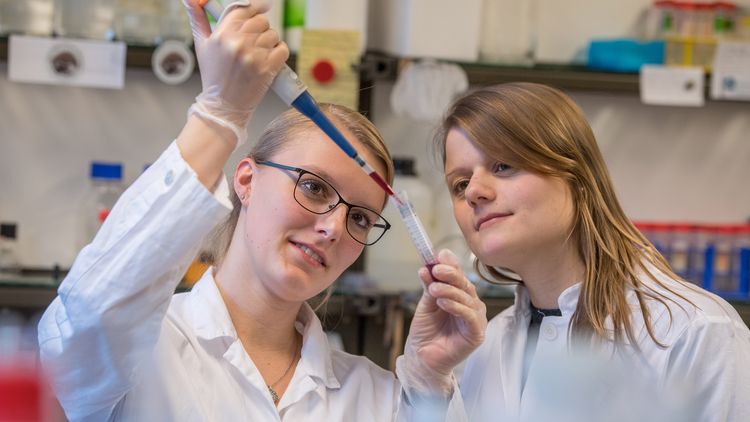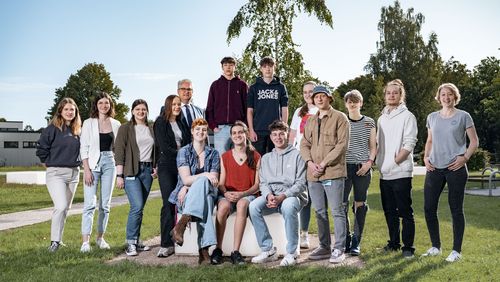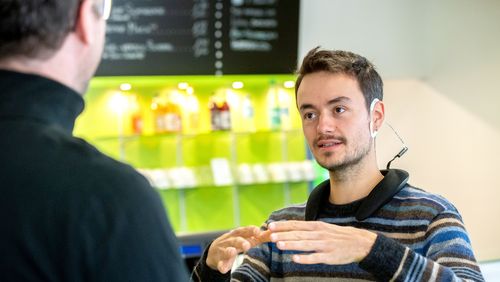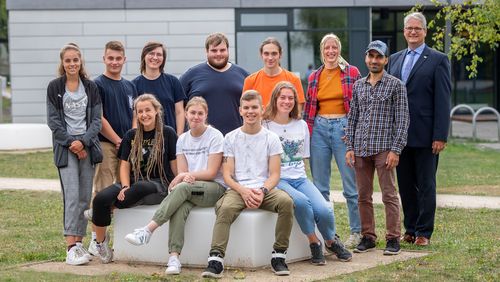What happens at the molecular level when we smell, see and hear? At the University of Oldenburg the Research Training Group "Molecular basis of sensory biology" has been studying these processes since 2013. The German Research Foundation (DFG) has now approved funding for the group for another four and a half years.
The research training group currently comprises thirteen doctoral candidates from different disciplines working with Oldenburg scientists from the natural sciences biology, chemistry and physics. The key focus of their research is to find out whether sensory processes like seeing, smelling, hearing, the detection of the Earth's magnetic fields in birds or the detection of chemical substances in bacteria are all based on common molecular principles. If the molecular principles are the same for all these processes this could serve as inspiration for new technical systems, for example in the field of biomedicine.
"With its decision the DFG has once again acknowledged the achievements of the university's research in the field of molecular sensory physiology and the quality of its training for doctoral researchers," said the President of the University Prof. Dr. Dr. Hans Michael Piper. The research training group is characterised by a high level of hands-on interdisciplinarity, he added. "The collaboration between chemists, physicians and biologists has visibly advanced the research in this field. Now the goal is to build on this success."
A better understanding of sensory systems
The scientists of the research training group are focussing on a variety of projects within the group, but they all have a common goal: to develop a better understanding of the cellular and molecular processes in sensory systems – or in other words those parts of an organism that are responsible for the perception and processing of sensory stimuli. It is known that organisms are highly sensitive to signals – for instance physical or chemical stimuli – from their environment, and perceive such stimuli with a high degree of precision. Special proteins, so-called receptor molecules, play an important part in this process: they translate external signals into information that is "readable" for the cell. The information is then transmitted within the cell via special signal paths, so that if necessary a certain reaction can be triggered – for example metabolism may be boosted to ensure survival in an altered environment. In order for these complex processing mechanisms to function precisely everything must work in harmony. Molecular switch mechanisms ensure that this is the case.
"If we want to gain a better understanding of the connections at the molecular level, interdisciplinary research will continue to be indispensable," Prof. Dr. Karl-Wilhelm Koch, head of the Biochemistry work group and coordinator of the Research Training Group stressed. "In the first funding period we used cellular and molecular biology methods in almost all the doctoral projects – often in combination with biophysical techniques," Koch explained, adding that other interdisciplinary methods were also used which will continue to be applied in the second funding period.
Researching malfunctions caused by genes
In addition, the researchers will focus on malfunctions of the visual and auditory system caused by genes. Koch explained that this will enable the young researchers to gain background knowledge and practical experience in the application of different scientific theories and methods. "We anticipate that physical model systems will help improve our understanding of sensory phenomena in organisms." Biological concepts could also serve as inspiration for the development of new technical systems, for example in the field of biomedicine, he noted.
DFG Research Training Groups are institutions set up at universities to promote young researchers. The DFG's goal is to qualify doctoral researchers, support their scientific independence and prepare them for the complex labour market of "science". The "Molecular basis of sensory biology" group is one of six research training groups funded by the DFG at the University of Oldenburg.






